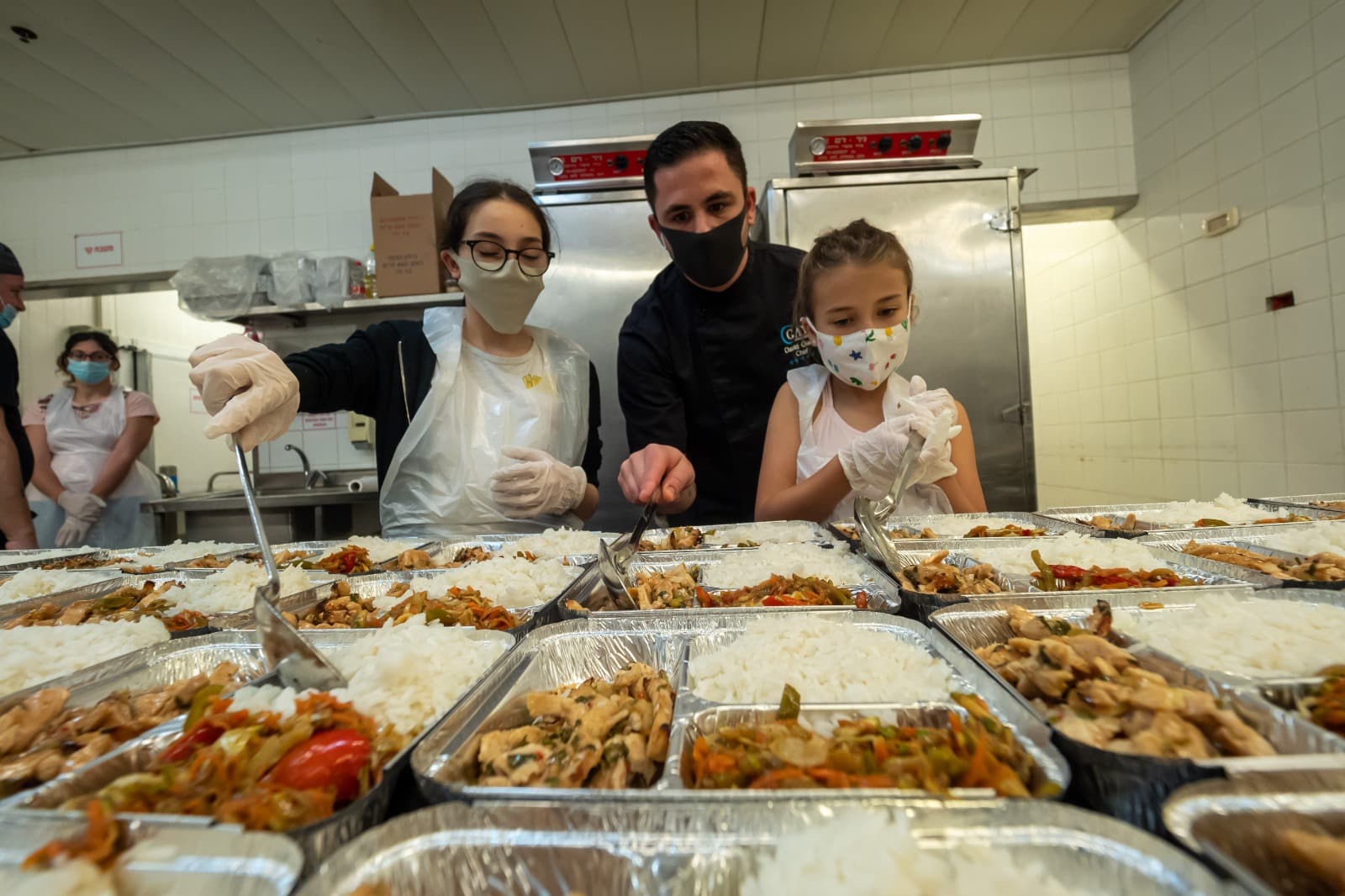
Event halls have been particularly hard hit by the coronavirus crisis. Gaya, in the central Israeli town of Ness Ziona, was no exception. Within days of the outbreak in March, Gaya’s owner Shahar Kahlon was scrambling to keep up with the ever-changing restrictions.
But it soon became clear that his hall, an industry behemoth that regularly hosts weddings for over a thousand people, would be out of commission for the foreseeable future. Kahlon was determined not to let his hall sit idle. Together with a close friend, philanthropist Baruch Sheinberg, the two came up with the idea to turn the hall into a makeshift soup kitchen. Sheinberg would front the costs, Kahlon would provide the venue and Leket Israel, the country’s largest food bank, would do daily pick up and delivery to soup kitchens. Now all they had to do was find a chef and coordinator to run the operation.
Enter David Guedj, who has been in Kahlon’s employ since he was 15. “Without thinking twice I told him, ‘Shahar, I’m coming and I don’t want to be paid a penny for it,’ ” Guedj said. He recruited four of his cooks, also on unpaid leave, who volunteer their time.

The daily operation is enormous and even though Guedj is used to catering large- scale events, he’d never done it on a daily basis before, and never with a skeleton staff of only eight people. Guedj’s day begins at 5 a.m. He divides his volunteers into two groups, one for cooking and the other for filling up the takeaway trays. Guedj formulated a weekly menu in which the same food is never repeated twice. Each needy person receives a portion of protein, either meat or chicken, and two sides — a carbohydrate and a vegetable.
It’s very important for my children to understand that there are people in the world who will never be able to say, ‘Abba, make me ravioli with cream sauce for dinner.’
By 9:45 a.m. all 1,000 meals are ready and awaiting pickup from Leket’s driver. “It’s like an assembly line at a factory,” Guedj said. The second shift then starts, which consists of cooking and ordering supplies for the following day. At 2 p.m. Guedj picks up his four young children and brings them back to the hall until 4 p.m.
“I showed my 8-year-old a food tray and explained that one person will get this and this is all he will have to eat until the same time tomorrow,” Guedj said. “It’s very important for my children to understand that there are people in the world who will never be able to say, ‘Abba, make me ravioli with cream sauce for dinner.’ ”

Gaya has been providing meals to local, needy families for the past seven years. Guedj cooks the meals, which will last families for an entire week on Friday mornings and delivers them himself. “When you see a hungry 5-year-old sitting on the curb and waiting for his food to arrive, or when you enter a home with no couch or table, just a mattress upon which the family sits on and eats their meals, it really put things in perspective,” he said.
However, the daily grind of producing 1,000 meals does take its toll. “I can’t tell you it’s not hard,” Guedj said. “It’s very hard. It’s exhausting. But when you finish work, you smile. The satisfaction you get from helping another person is better than any salary.”























 More news and opinions than at a Shabbat dinner, right in your inbox.
More news and opinions than at a Shabbat dinner, right in your inbox.